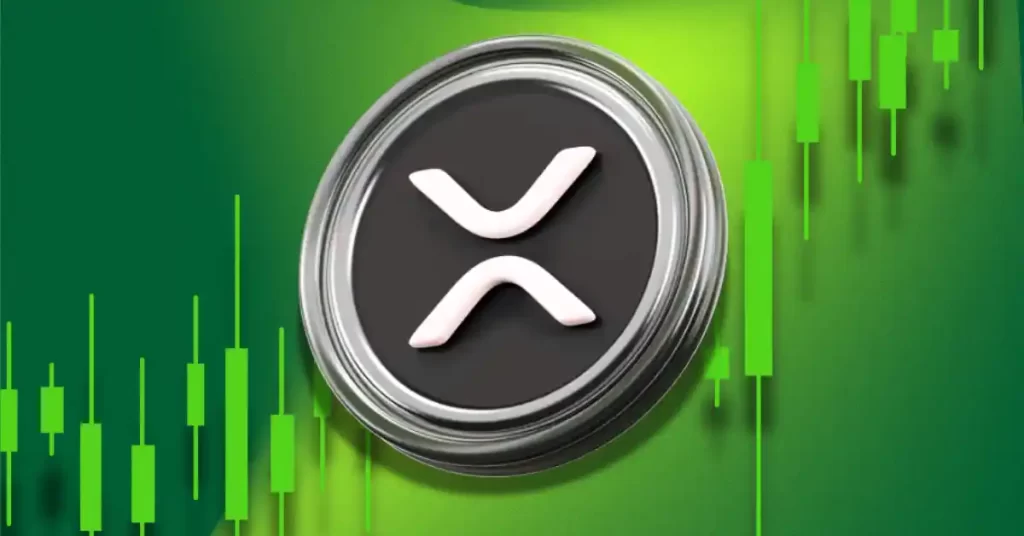What is the crypto policy in Dubai?
Dubai is known for its ambitious and forward-thinking approach when it comes to technology and innovation. As cryptocurrencies gain popularity worldwide, it is essential to understand the crypto policy in Dubai and how it impacts the city’s economy and its residents. In this article, we will explore various aspects of Dubai’s crypto policy, from its legal framework to the future of cryptocurrency in the city.
Understanding Cryptocurrency
Cryptocurrency is a digital or virtual currency that uses cryptography for security. It operates on a decentralized network called blockchain, which ensures transparency and eliminates the need for intermediaries like banks. Bitcoin, Ethereum, and Ripple are some of the popular cryptocurrencies in the market.
Defining Cryptocurrency
At its core, cryptocurrency is a form of digital money that relies on cryptography for secure transactions. It provides individuals with the freedom to transfer funds anonymously and without the involvement of traditional financial institutions. This decentralization gives users control over their money and reduces the risk of censorship or restrictions.
The Rise of Cryptocurrency Globally
In recent years, cryptocurrency has gained significant traction globally. Its potential benefits, such as lower transaction fees and faster cross-border transfers, have attracted investors and entrepreneurs alike. Moreover, the decentralized nature of cryptocurrencies has sparked interest among individuals seeking financial autonomy and protection against inflation.
The concept of cryptocurrency traces back to the early 2000s, with the creation of systems like B-Money and Bit Gold. However, it was not until the introduction of Bitcoin in 2009 by an unknown person or group using the pseudonym Satoshi Nakamoto that the modern era of cryptocurrency truly began. Bitcoin’s innovative use of blockchain technology set the stage for the development of thousands of alternative cryptocurrencies, each with its unique features and applications.
The Impact on Traditional Financial Systems
As cryptocurrencies continue to gain mainstream acceptance, traditional financial systems are beginning to feel the impact. Central banks and regulatory bodies around the world are exploring the integration of blockchain technology into their operations to enhance security and efficiency. Additionally, the concept of central bank digital currencies (CBDCs) has emerged, blurring the lines between traditional fiat currencies and cryptocurrencies.
The Legal Framework of Cryptocurrency in Dubai
When it comes to cryptocurrency regulation, Dubai has taken a proactive and pragmatic approach. The government recognizes the potential of this emerging technology and strives to create a supportive environment for its growth while ensuring the protection of investors and combating illegal activities.
Dubai’s stance on cryptocurrency regulation is not only forward-thinking but also reflects its commitment to embracing innovation in the financial sector. By fostering a conducive environment for cryptocurrency businesses to thrive, Dubai aims to position itself as a global hub for blockchain technology and digital assets.
The Role of Government in Cryptocurrency Regulation
The government of Dubai, through its regulatory bodies like the Dubai Multi Commodities Centre (DMCC) and the Dubai Financial Services Authority (DFSA), is responsible for overseeing the regulation of cryptocurrencies. Their aim is to strike a balance between facilitating innovation and safeguarding the interests of all stakeholders.
These regulatory bodies work closely with industry experts, legal professionals, and technology specialists to develop comprehensive frameworks that address the unique challenges posed by cryptocurrencies. By staying abreast of international best practices and collaborating with global regulatory authorities, Dubai seeks to establish itself as a leader in progressive cryptocurrency regulation.
Legal Implications for Crypto Traders
Crypto traders in Dubai must adhere to certain legal requirements, including obtaining licenses from the relevant authorities. These licenses serve to ensure transparency, prevent money laundering, and protect investors from fraudulent activities. By imposing such regulations, Dubai aims to create a trusted and secure environment for crypto traders.
Furthermore, Dubai’s regulatory framework for cryptocurrency trading extends beyond licensing requirements to encompass consumer protection measures and dispute resolution mechanisms. In the event of disputes between traders or breaches of contractual obligations, specialized tribunals and arbitration centers are available to provide swift and impartial resolutions, thereby instilling confidence in the integrity of Dubai’s cryptocurrency market.
The Crypto Market in Dubai
Dubai’s crypto market has witnessed significant growth and has become an attractive destination for investors and entrepreneurs in the industry.
Located at the crossroads of East and West, Dubai has emerged as a global hub for blockchain and cryptocurrency innovation. The city’s strategic location, coupled with its business-friendly environment and forward-thinking leadership, has positioned it as a key player in the digital asset space.
Key Players in Dubai’s Crypto Market
Various key players are actively contributing to the development of Dubai’s crypto market. From startups and crypto exchanges to financial institutions and government-backed initiatives, these entities are driving innovation and creating opportunities for economic growth.
Startups in Dubai’s crypto ecosystem are leveraging the city’s infrastructure and resources to pioneer new technologies and solutions. Meanwhile, established financial institutions are exploring ways to integrate blockchain into their operations, signaling a shift towards a more decentralized financial landscape.
Growth and Trends in Dubai’s Crypto Market
The crypto market in Dubai has experienced exponential growth in recent years. This growth can be attributed to factors such as supportive government policies, strategic partnerships, and an increasing adoption rate among businesses and individuals. As more companies and institutions embrace cryptocurrencies, Dubai’s crypto market is poised for continued expansion.
Furthermore, the growing interest in non-fungible tokens (NFTs) and decentralized finance (DeFi) has fueled innovation in Dubai’s crypto market. The city’s vibrant ecosystem is attracting talent and capital from around the world, solidifying its position as a leading center for blockchain technology.
Impact of Dubai’s Crypto Policy on the Economy
Dubai’s crypto policy has the potential to make a significant impact on its economy. While there are potential benefits, there are also risks and challenges associated with the adoption of cryptocurrencies.
As Dubai continues to position itself as a global financial and technological hub, the implementation of a crypto-friendly policy could further solidify its reputation as a forward-thinking and innovative city. This move could attract top talent in the blockchain and cryptocurrency space, leading to the development of cutting-edge technologies and solutions that could benefit not only Dubai but the entire region.
Potential Benefits of Cryptocurrency to Dubai’s Economy
The adoption of cryptocurrency can bring several economic benefits to Dubai. By embracing this technology, the city can attract foreign investments, spur innovation, and position itself as a global hub for blockchain and cryptocurrency-related activities. Additionally, the use of cryptocurrency can streamline financial transactions, reducing costs and improving efficiency.
Furthermore, by embracing cryptocurrencies, Dubai could enhance financial inclusion by providing access to digital financial services for its unbanked population. This could lead to increased economic participation and empowerment of individuals who were previously excluded from traditional banking systems.
Risks and Challenges of Cryptocurrency Adoption
Despite the potential benefits, there are inherent risks and challenges associated with the adoption of cryptocurrency. Volatility in the crypto market, lack of regulatory clarity, and potential security vulnerabilities are some of the challenges that need to be addressed. Dubai’s crypto policy must strike a balance between innovation and investor protection to mitigate these risks effectively.
Moreover, the integration of cryptocurrencies into the traditional financial system may pose challenges related to anti-money laundering (AML) and know your customer (KYC) regulations. Dubai will need to establish robust compliance mechanisms to prevent illicit activities while ensuring the privacy and security of legitimate users in the crypto space.
Future of Cryptocurrency in Dubai
The future of cryptocurrency in Dubai looks promising, with the city embracing innovation and aiming to become a global leader in the blockchain and crypto space.
Predicted Trends in Dubai’s Crypto Policy
Dubai’s crypto policy is expected to evolve to accommodate the changing landscape of cryptocurrencies. This evolution may include further regulatory frameworks, increased collaboration with international bodies, and innovative initiatives to attract businesses and investors from around the world.
The Role of Innovation in Shaping Dubai’s Crypto Future
Innovation will play a crucial role in shaping Dubai’s crypto future. The city’s commitment to fostering innovation and supporting emerging technologies positions it as an ideal environment for blockchain startups and crypto entrepreneurs. This commitment, coupled with strategic partnerships and a supportive regulatory framework, will drive Dubai’s crypto policy forward and contribute to its long-term success.
One example of Dubai’s commitment to innovation is the establishment of the Dubai Blockchain Strategy. Launched in 2016, this strategy aims to make Dubai the world’s first blockchain-powered government by 2020. Under this initiative, the government plans to implement blockchain technology across various sectors, including healthcare, transportation, and energy. By leveraging the transparency, security, and efficiency of blockchain, Dubai aims to enhance government services and streamline processes, ultimately benefiting both residents and businesses.
Furthermore, Dubai has been actively promoting blockchain and cryptocurrency events and conferences. These events serve as platforms for knowledge sharing, networking, and showcasing the latest advancements in the crypto space. The Dubai International Blockchain Summit, for instance, brings together industry leaders, experts, and enthusiasts to discuss the potential of blockchain technology and its impact on various sectors. Such events not only foster collaboration but also attract global attention to Dubai’s growing crypto ecosystem.
In conclusion, Dubai’s crypto policy reflects its forward-thinking approach and commitment to embracing emerging technologies. Through a supportive legal framework, strategic partnerships, and a thriving crypto market, Dubai aims to position itself as a leading global destination for blockchain and cryptocurrency-related activities. As the future unfolds, Dubai’s crypto policy will continue to evolve, shaping the city’s economy and its role in the global crypto ecosystem.






